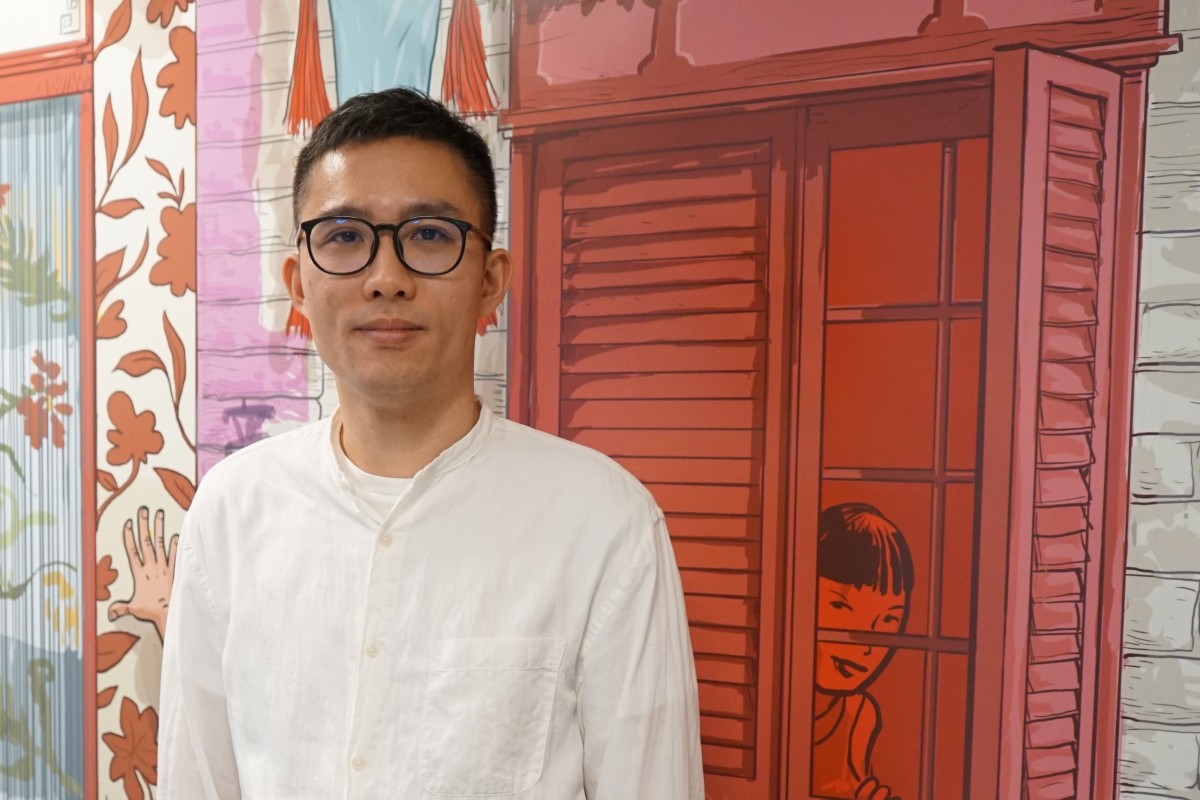
Pen pal app founder on how technology has made us less connected and patient, and why we need to take things more Slowly
In this era where instant gratification is the norm, Kevin Wong is on a mission to improve the quality of communication by taking it slow
 Kevin Wong says technology has deprived us of our ability to wait.
Kevin Wong says technology has deprived us of our ability to wait.We live in a fast-paced world that values efficiency, and where instant gratification has become part of our culture. One local communication app developer, however, has set out to go against the flow, and slow down the pace of communication of the modern global community.
Kevin Wong Ho-yin, the founder of digital pen pal app Slowly, believes that due to the convenience of technology that we’ve grown so used to, we’ve become less patient and are growing less sensitive to time and distance.
By bringing the traditional pen pal experience to smartphones, Wong was able to create a communication tool which helps people get in touch with their dulled senses, and makes communicating via phones more meaningful.
Sleep interrupted: #sleeptexting can impact your memory, grades, and happiness level
“Right now, we are living in an era in which instant messaging is the norm. Some get impatient if the person we’re talking to takes more than 10 seconds to respond on WhatsApp,” Wong said.
“I don’t think it’s natural for human beings to interact at this pace, and technology has deprived us of our ability to wait.”
As someone who easily gets overwhelmed by constant push notifications from social media apps and text messages, Wong was inspired to create the Slowly app in 2017.
He asked himself how people used to communicate before the invention of mobile phones and instant messaging.
“That was when I remembered writing to a couple of pen pals when I was young,” he said. “Although I’ve long forgotten the details of our exchange, I’ll never forget the thrill of waiting for their reply to arrive, and how exciting it was, little by little, to learn more about someone you’ve never met in person.”
Wong began developing the app last year, hoping to recreate the same sense of suspense and mystery, while also increasing people’s mindfulness of time and distance.
5 social media detox tips that will make you want to switch off your phone and go outside
On the app, users have to choose a nickname and an avatar before matching with potential pen friends from around the world. What makes the concept so unique is that the delivery time of your electrotonic letter will increase or decrease depending on how far away you live from your pen pal.
“The rise of real-time communication has led us to become less aware of time and distance. Very rarely do we pay attention to where a Twitter user who shares our post is from.”
However, once the idea of time is tied in with the idea of distance, Wong added, the physical distance between people becomes more noticeable. Another feature of the app is that users are not required to give personal information to set up a profile.
The lost art of letter writing
In fact, preserving a bit of anonymity is encouraged. “Disclosing our real name and personal information online have become somewhat expected these days. We are increasingly asked to reveal our personal identity online for various reasons and e-marketing purposes,” Wong said.
“But is it really necessary for us to give up our identity to exchange ideas and thoughts with another person?”
When the internet was first invented, users of online networking platforms used to have the right to remain anonymous, Wong said.
How social media is harmful to teenagers and how young Hongkongers cope with it
Wong was inspired by these old platforms, as well as massively multiplayer online role-playing games (MMORPGs), and decided to apply it to his communication app.
“Slowly users don’t have to use their real name. I wanted to give them the option to hide or reveal their true identity. It is a right that we’re now deprived of by many mobile applications.”
The app has been received well so far and was featured as the App of the Week on the Google Play Store last month. A new in-app Stamp Store was launched on Friday that allows users to use real money to buy special stamps to attach to their digital letters, making the letter posting experience a bit more realistic.
